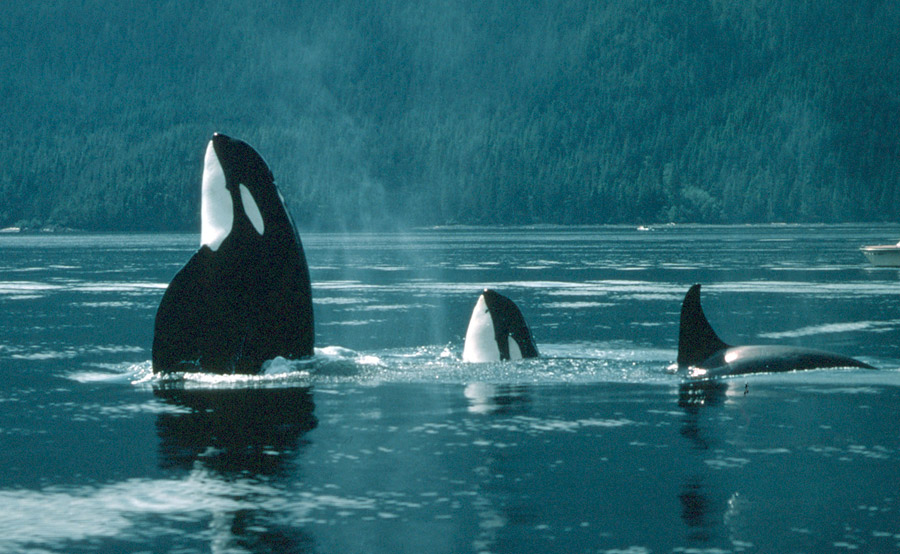
Researchers teach Killer Orca Whales to imitate human speech and say “Hello”, “Bye Bye”
The Orcas whales have the capability of mimicking the human voice, reveals the latest study by researchers where one can hear these species emitting words like “One, two”, “hello”, and “bye bye”. The whale studied by the researchers is named “Wikie” who was heard emitting the sound similar to the name “Amy”.
The study points out to the fact that orcas can easily imitate the human speech along with some unfamiliar sounds that are produced by orcas present in the same territory for communication. This sound is like blowing into a raspberry. This discovery is effective in shedding light on the fact that different pods of killer whales have come up with their very own dialect which originated from imitation being seen between different orcas in the water-based territory.
Some reports also suggest that these whales can also copy the sounds being produced by sea lions and bottlenose dolphins. A professor In Evolutionary Origins of Mind, Joseph Call, at the University of St Andrews as well as the co-author of this whale based study explained that the researchers wanted to know the degree of flexibility housed by killed whales in terms of copying the sounds. The team exposed them to a sound that isn’t their average daily one. It was the word “hello”.
It’s not just the killer whales who have managed to emit copied sounds but a large section of the animal kind like dolphins, parrots, elephants, beluga whales and orangutans can easily mimic various sounds. Beluga whales use their nasal cavities to emit the sounds while the Indian elephant named Koshik used its trunk while being jammed in the mouth to produce words from Korean dialect that included “No”, “Sit down” and “Hello”.
Even with a different morphology, the orcas can successfully produce sounds similar to the humans. However, there is no strong evidence suggesting that these whales can understand the words they mimic. The sound based experiment was conducted on a killer whale named “Wikie” who is a female orca aged 14. Before the experiment, the whale was trained in order to copy any actions being performed by a different orca on gesture given by a human. The findings of this research were published in the journal named Proceedings of the Royal Society B: Biological Sciences.
Wikie was initially trained to copy sounds from other orcas and once she got hold of the gestures she was exposed to six sounds that were of the unknown kind to her. The words included “bye bye”, “ah ha”, “one, two”, and “hello”. The scientists stuck to simple words as it would be expecting a lot in a short span of time which would be unrealistic. The research showed that Wikie could easily copy many of the words, be it from an orca or human with a success rate of about 50 percent.


